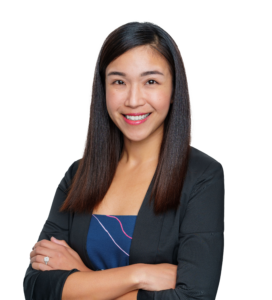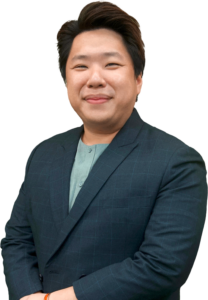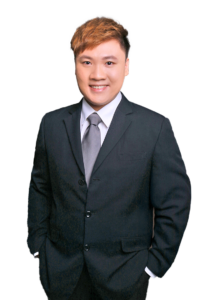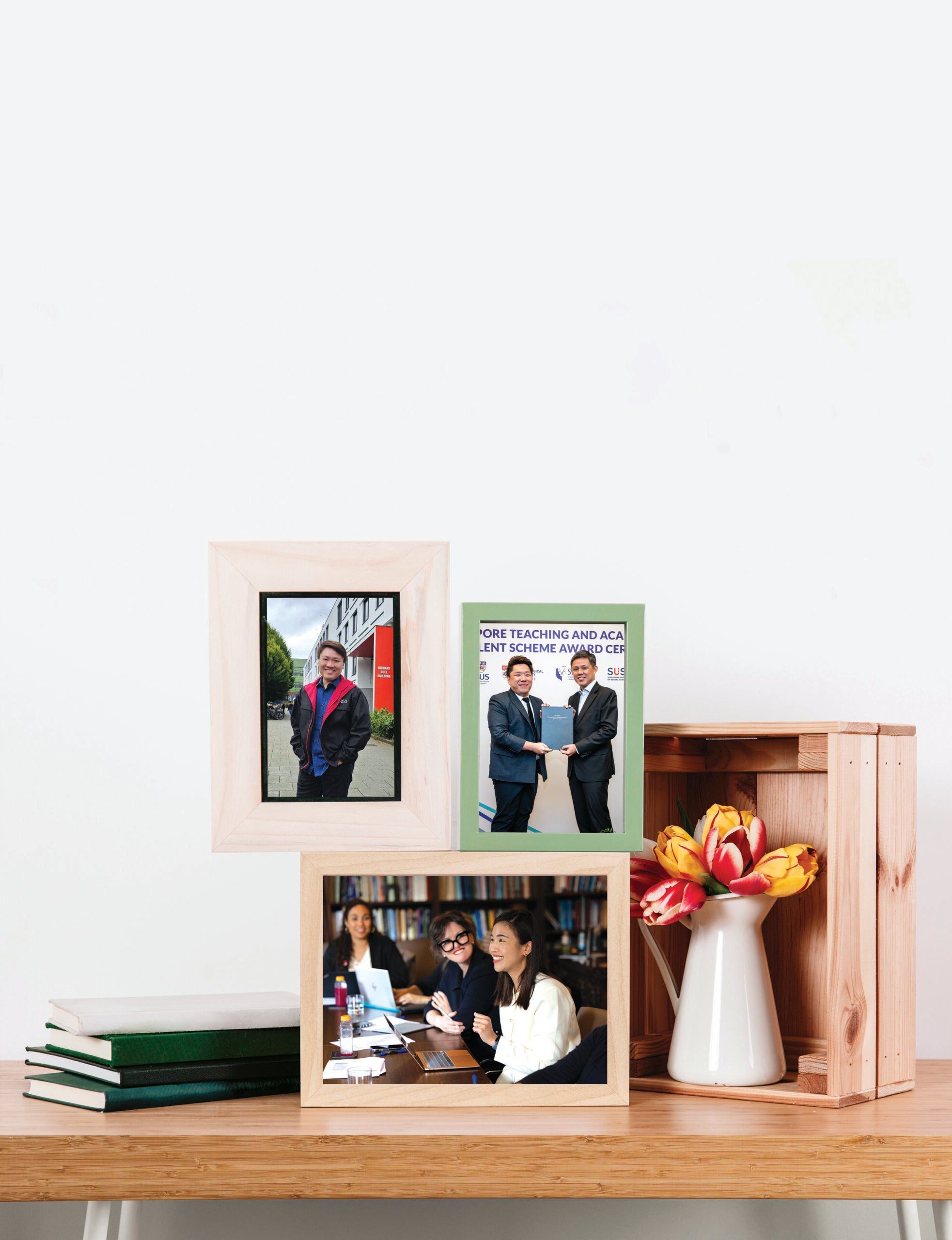 Meet Asia’s only Harkness Fellow this year, as well as the first NUS Nursing recipients of the MOE START Overseas Postdoctoral Fellowship.
Meet Asia’s only Harkness Fellow this year, as well as the first NUS Nursing recipients of the MOE START Overseas Postdoctoral Fellowship.
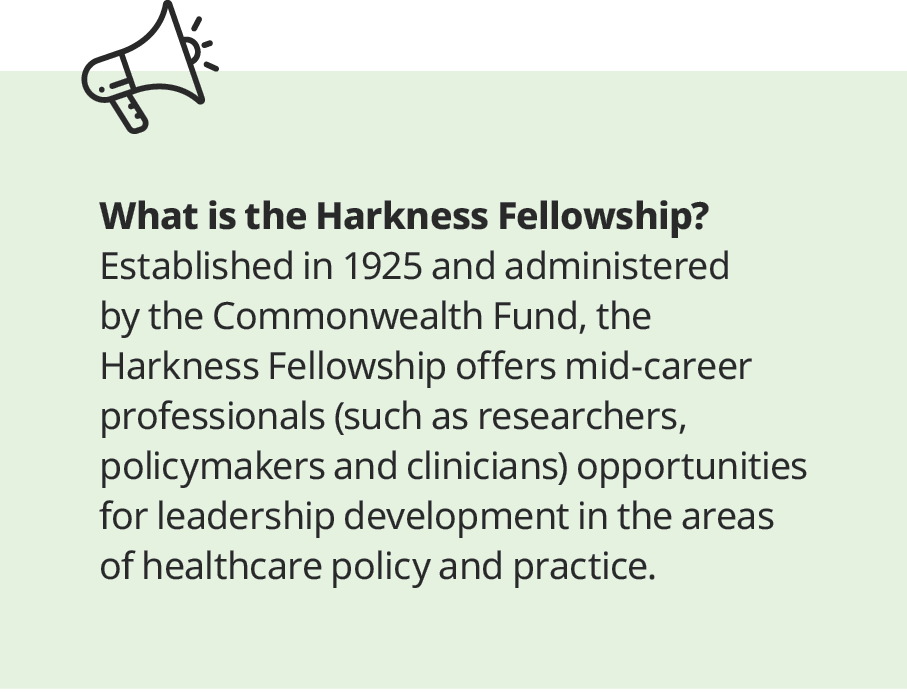
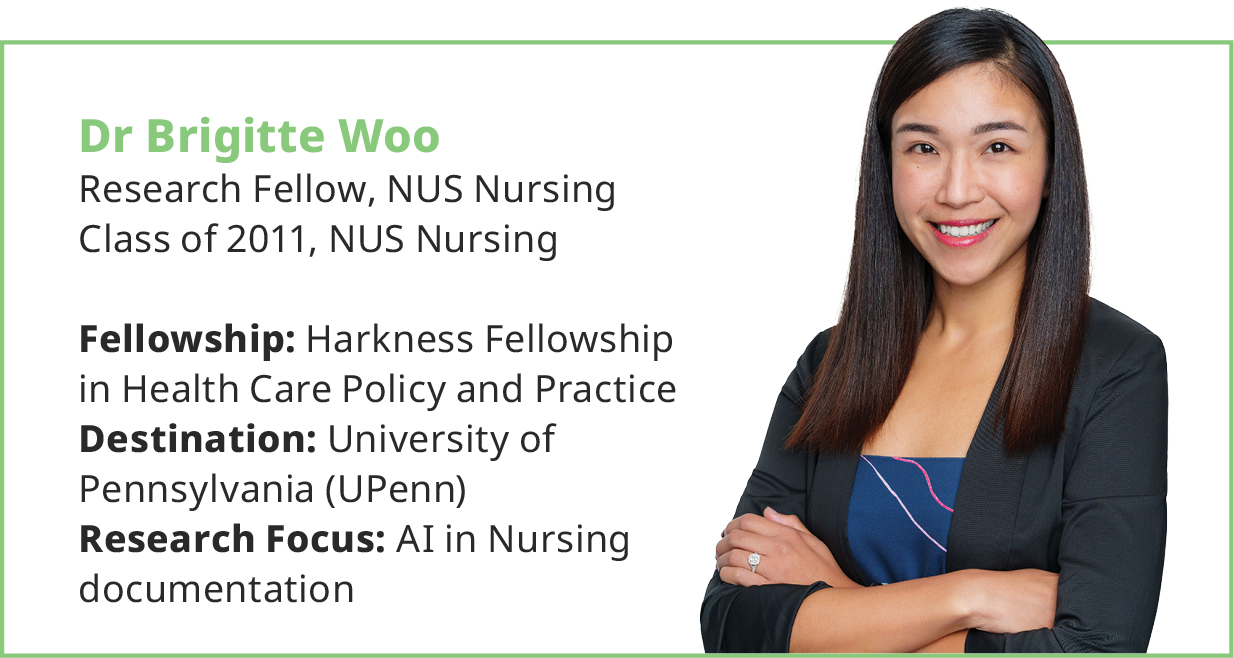
On the perfect fellowship
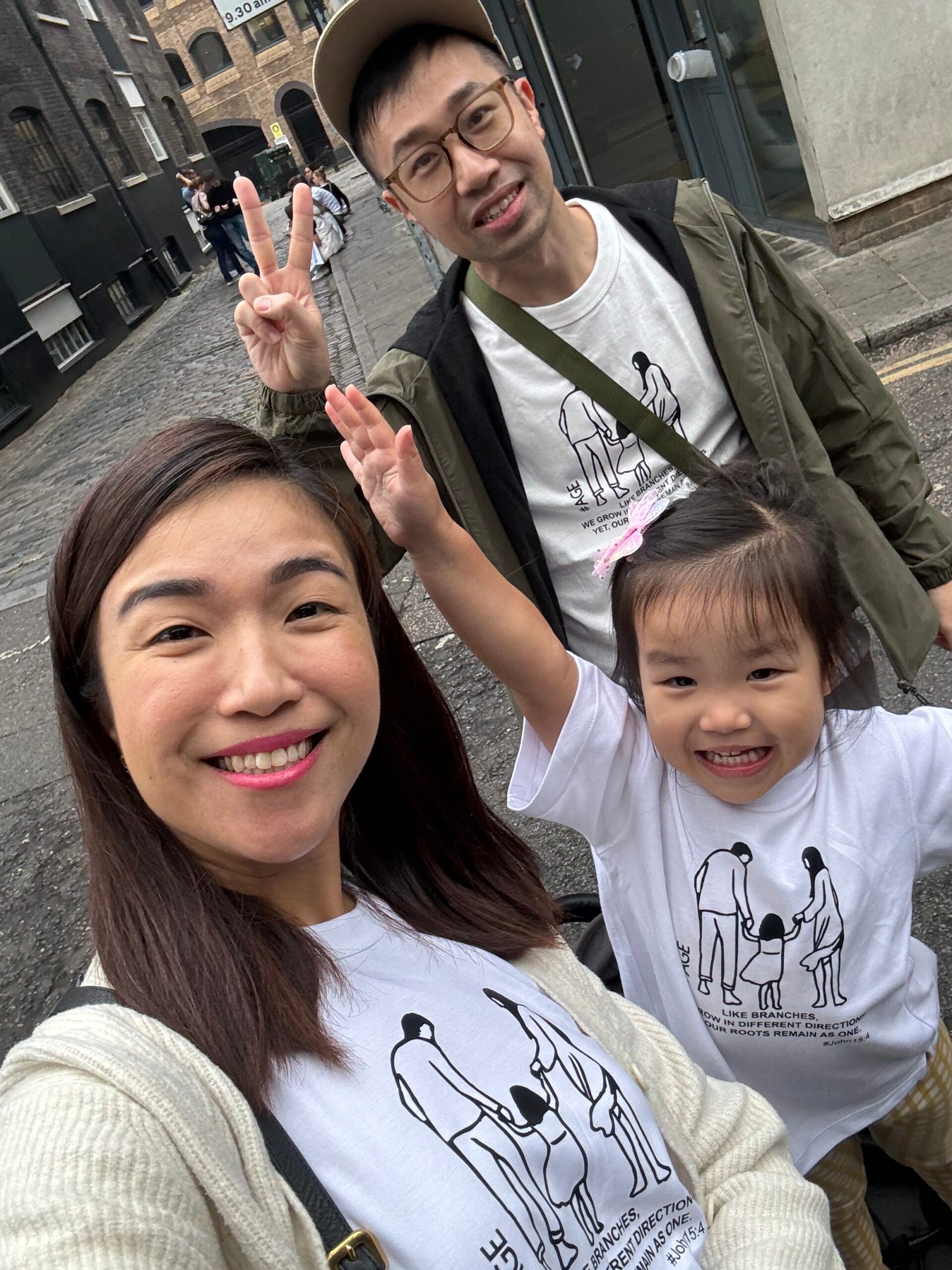
“I’ve been keeping a lookout for an overseas fellowship to learn about other healthcare systems and work with international academics for quite some time. However, as a mother with a young daughter, I have more considerations beyond the fellowship. For example, I wanted to find one that allows my family to relocate with me. Naturally, factors such as affordability and safety rank high on my list. The Harkness Fellowship ticked all the boxes for me. Not only did it come with strong financial support, its focus aligns with my work on Nursing workforce development and healthcare policy.”
On being the second Singaporean Harkness Fellow
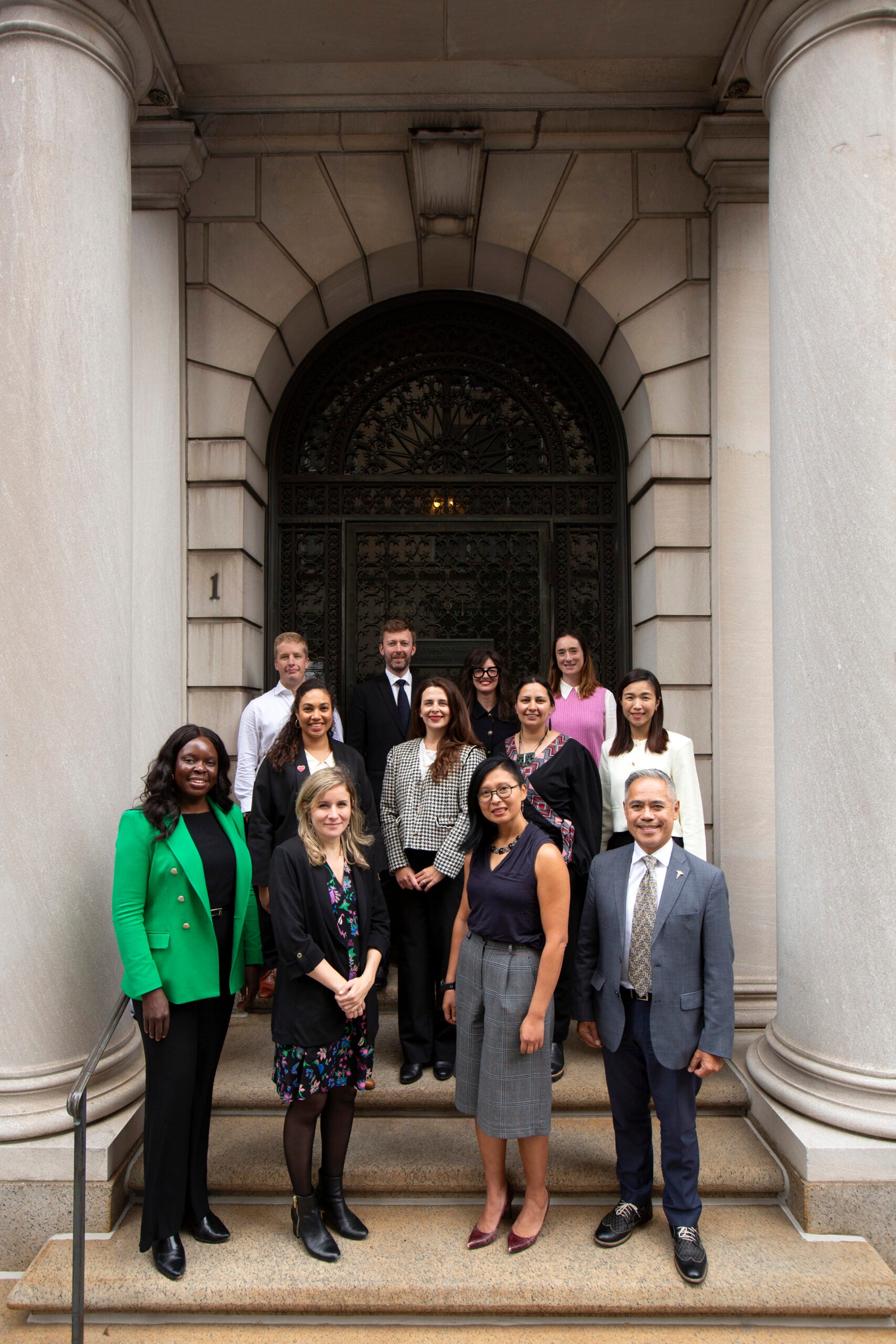
“I only realised months after my application that Harkness Fellows tended to be senior or renowned researchers. In fact, the first Singaporean Harkness Fellow—Assistant Professor Reuben Ng from the Lee Kuan Yew School of Public Policy—has very illustrious credentials. But it was only when I was invited to Health Minister Ong Ye Kung’s office, where he personally congratulated me on receiving the fellowship, that I truly really felt the pressure—which made me all the more determined to do NUS and Singapore proud.”
On Large Language Models (LLMs) and Nursing
“I had two proposals for consideration—and decided to submit my ‘moonshot’ idea based on my mentor’s advice. Even though LLMs and artificial intelligence (AI) may not be in my usual research scope, I’ve been curious about how we can use these technologies to better support the Nursing workforce. That is why my proposal aims to explore the potential utility of LLMs in helping alleviate Nursing documentation tasks—which can be quite time consuming, especially in the ICU—as well as gauge nurses’ acceptance of using AI in their day-to-day work.”
On the UPenn and US experience
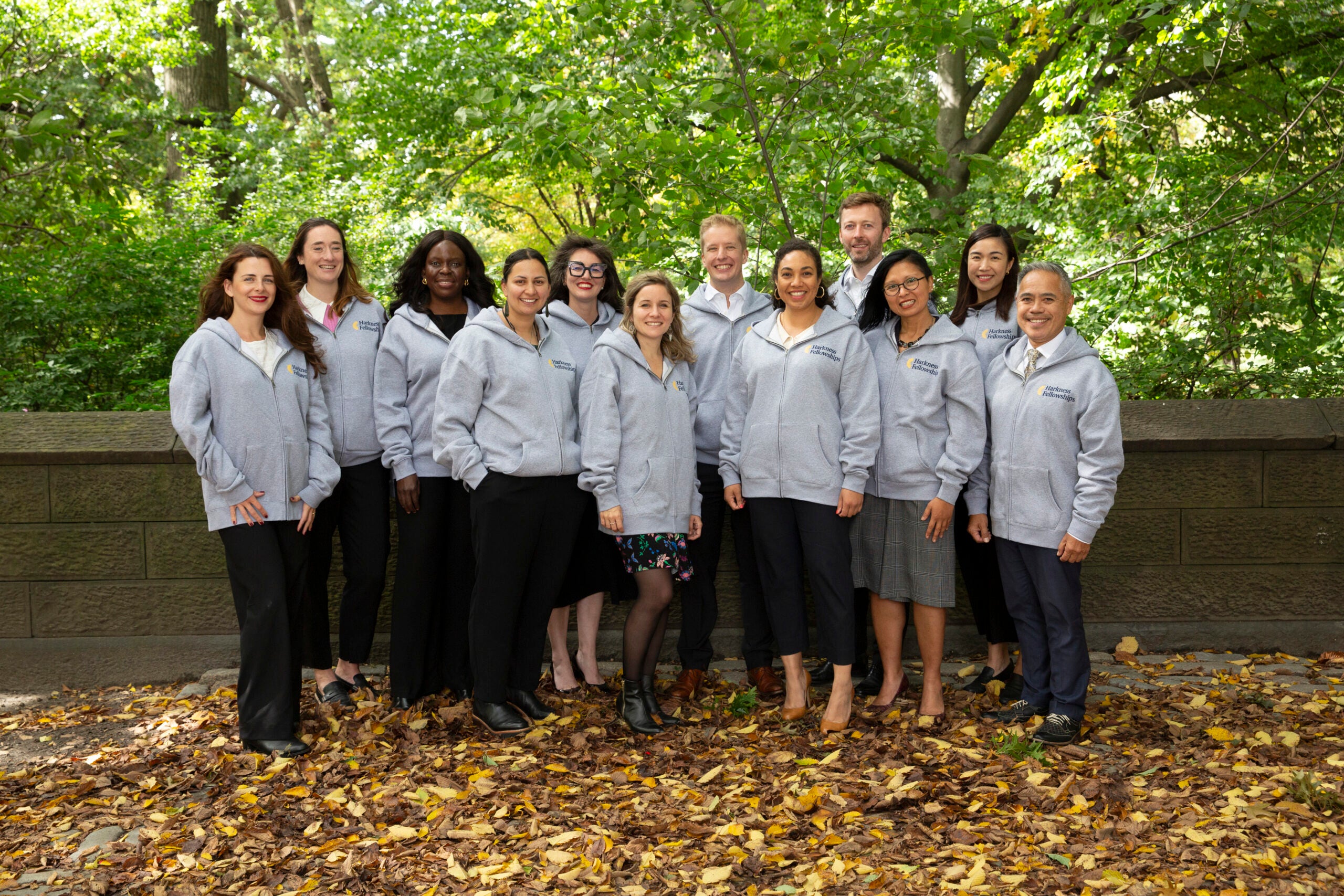
“I’ve only been here for a week. But coming to the best Nursing school in the world has been surreal—it’s eye-opening how passionate and outspoken Nursing students here are. Observing the US healthcare system, it’s also clear that people have a lot of respect for nurses, and that includes nurses for their own profession. They are not afraid to speak up, whether it’s for themselves or the right thing to be done.”
On what comes after
“The Harkness Fellowship is unique in that it prepares Fellows for policy communication and leadership—so there’s a yearlong programme of seminars and meetings. I’m looking forward to learning how to engage stakeholders—whether they are policymakers or end-users—and translate ideas to practice. My mentors (Professor Kenrick Cato and Dr Jiyoun Song) are also very strong clinical informaticians, so I’m hoping to hone my skills in clinical informatics.”
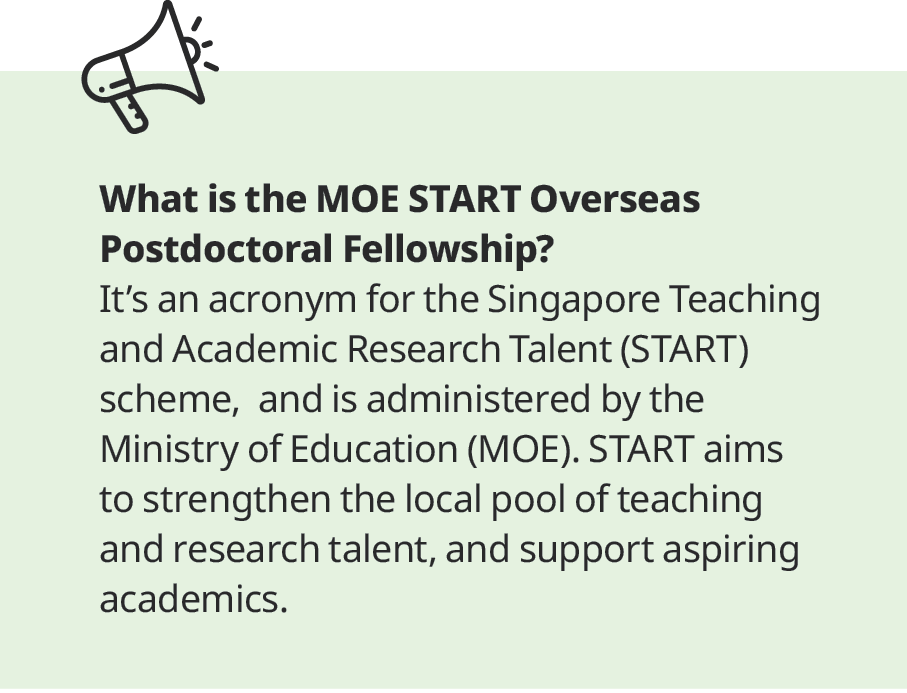
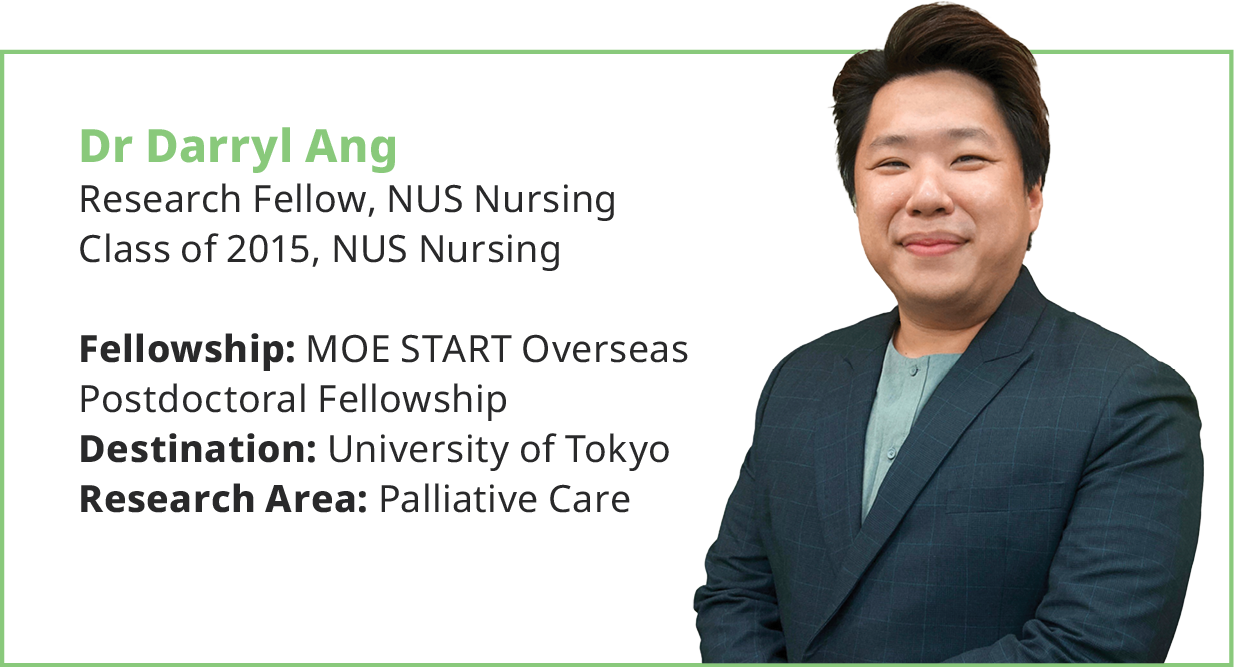
On preparing for the interviews
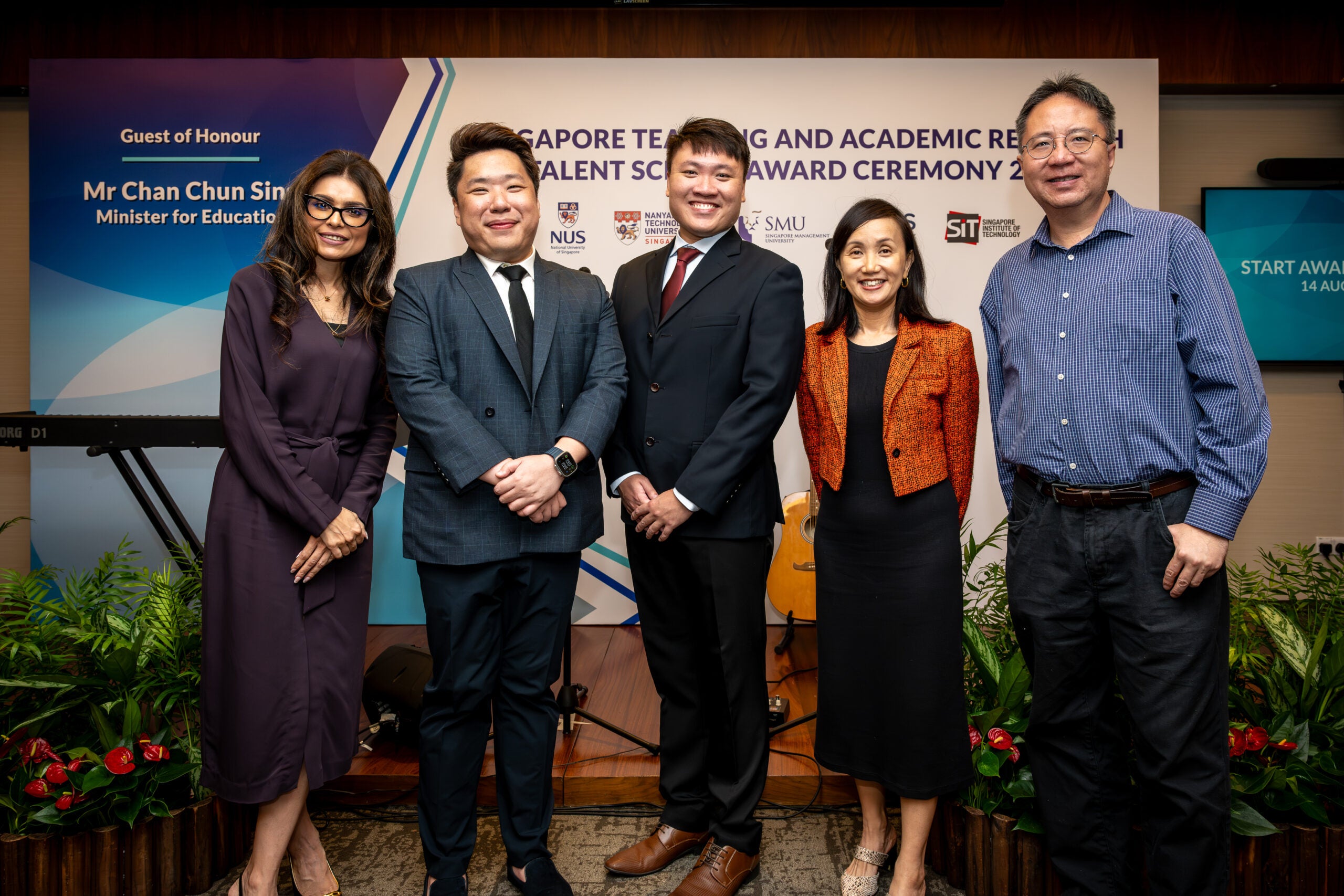
“I spent about a month putting the application package together. The hardest part was probably writing the research proposal—how could I share my excitement about my topic on palliative care in a compelling manner? And even though I rehearsed multiple times with my mentor Dr Shefaly, the interview was quite nerve-wracking. The people in the Zoom meeting were senior management or people I’ve only read about. Thankfully, the first question was one we already practised—‘Why (University of) Tokyo?’”
On the choice of Tokyo University
“One of my research areas is palliative care, and my recent work on advanced care planning (ACP) showed that there is much more we can do when it comes to raising ACP awareness and uptake, especially with the taboos around death. That’s when I started thinking about where we could look to for similar case studies—Japan. Despite having a super ageing population, Japanese seniors are known to enjoy long lives and good quality of life. I thought it would be interesting to see firsthand how they did it, and if we could apply some of their strategies to our local setting.”
On big data and quantitative research
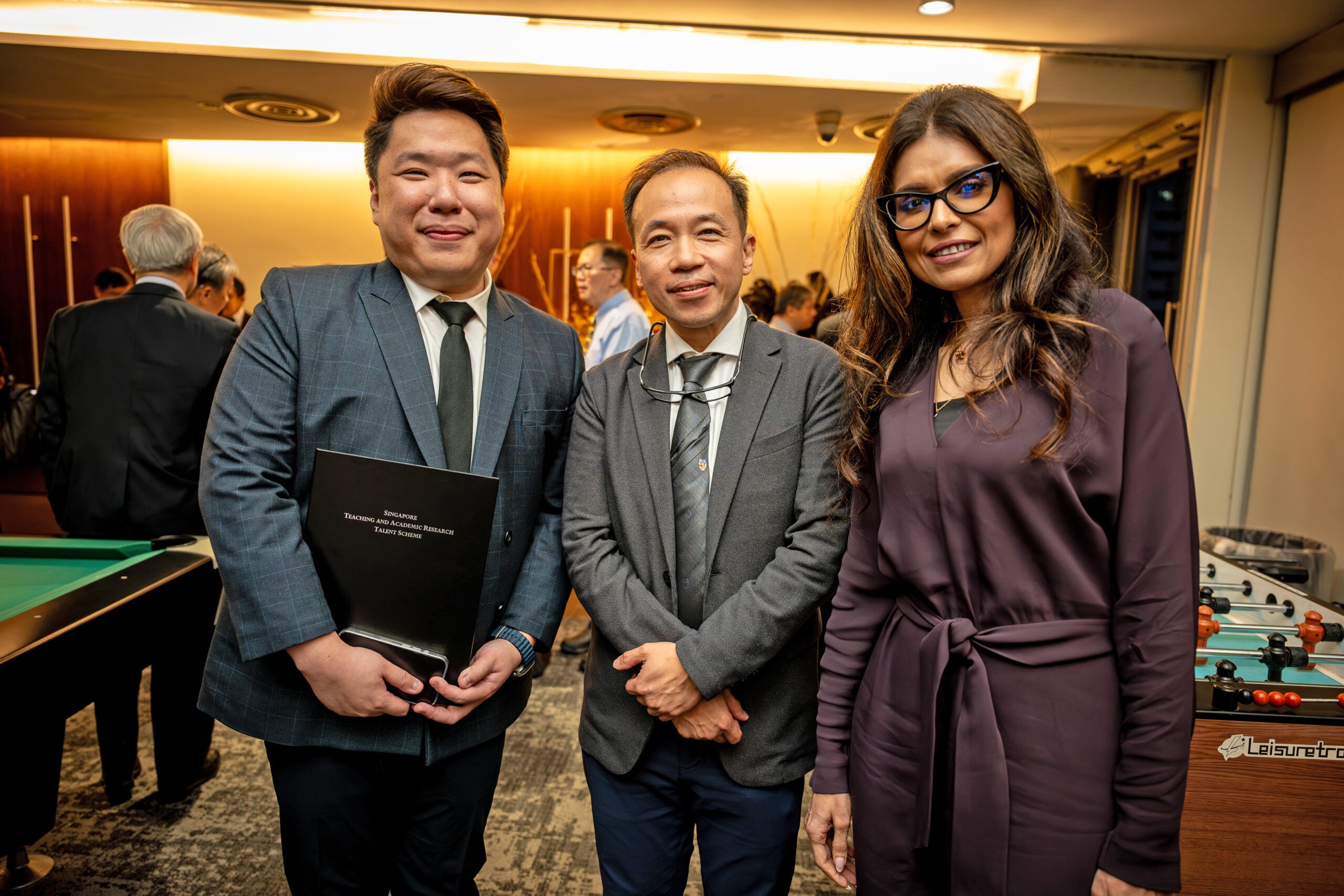
“Another reason I chose University of Tokyo was their structured one-year postdoctoral programme, with monthly seminars and engagements. I’m also excited to learn about different aspects of research and advanced research methods, which the programme covers. As my projects so far have mostly focused on experimental studies and qualitative research, I’m looking forward to further hone my quantitative research skills. My Tokyo mentor and I have already discussed possible projects with big data and statistics while I’m there.”
On robots in the land of the rising sun
“But big data is not the only tech thing I’m hoping to learn about. It is quite known that the Japanese are one of the frontrunners with regards to technology-aided healthcare interventions such as robots. I’ve seen videos of how their robots can do tasks in the wards like help patients shower and other activities of daily living, which is amazing and could be translated to our local setting. Looking at other forms of supportive technology that we could adopt (even beyond palliative care) is another of my goals.”
On living the teaching dream
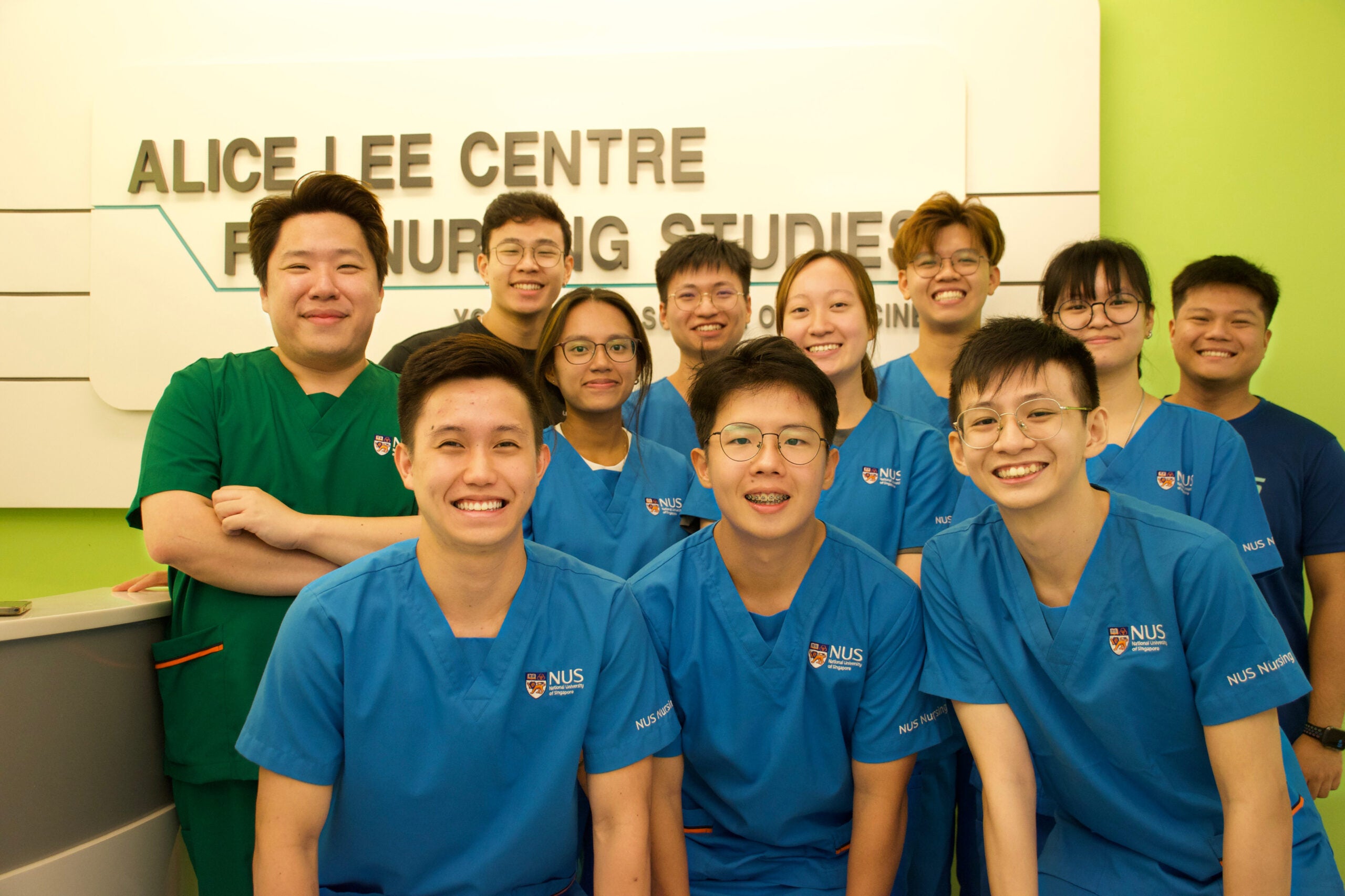
“I’m going to serve a bond with NUS after coming back. Which isn’t an issue for me because I want to work here. Especially when my childhood ambition was to be a teacher: I did my PhD so I could teach at NUS Nursing (where I had many amazing teachers and mentors). I’ve already had some teaching experience here as a Research Fellow, and recently got to see my students graduate. That was probably one of my happiest days—especially when they shared how they appreciated me walking with them to the finish line.”
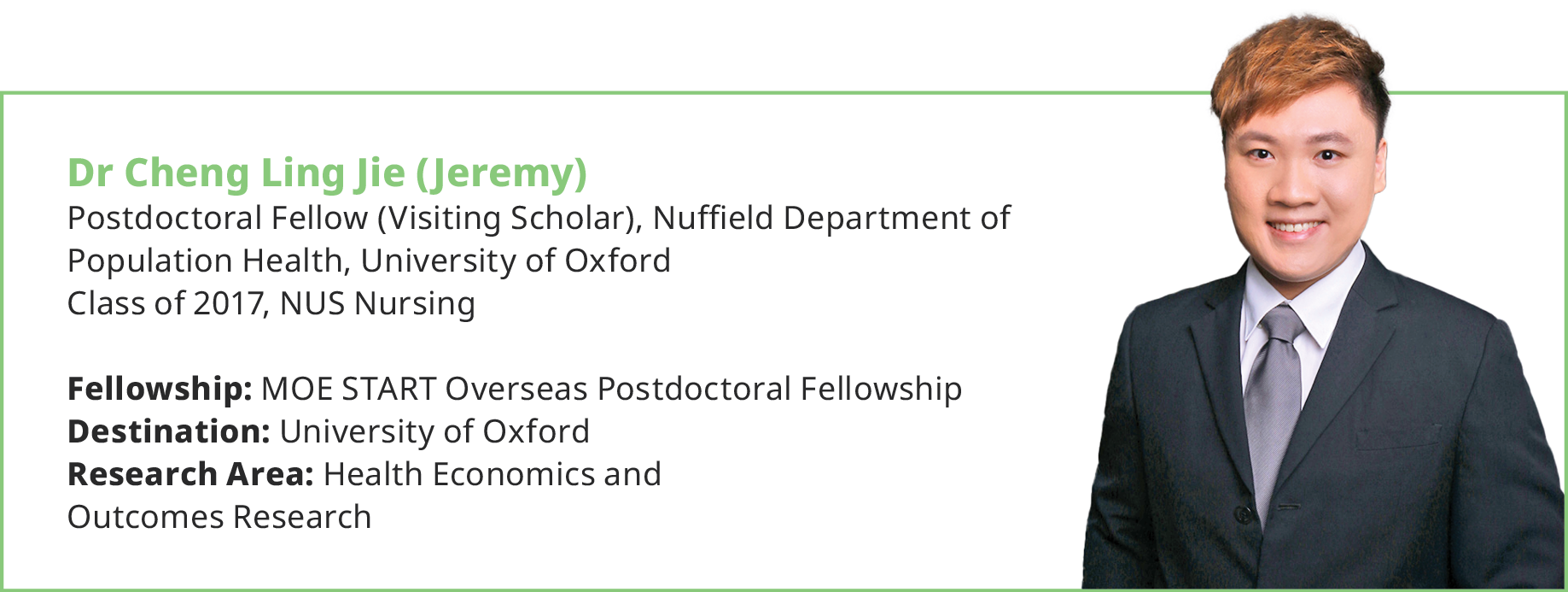
On writing research papers
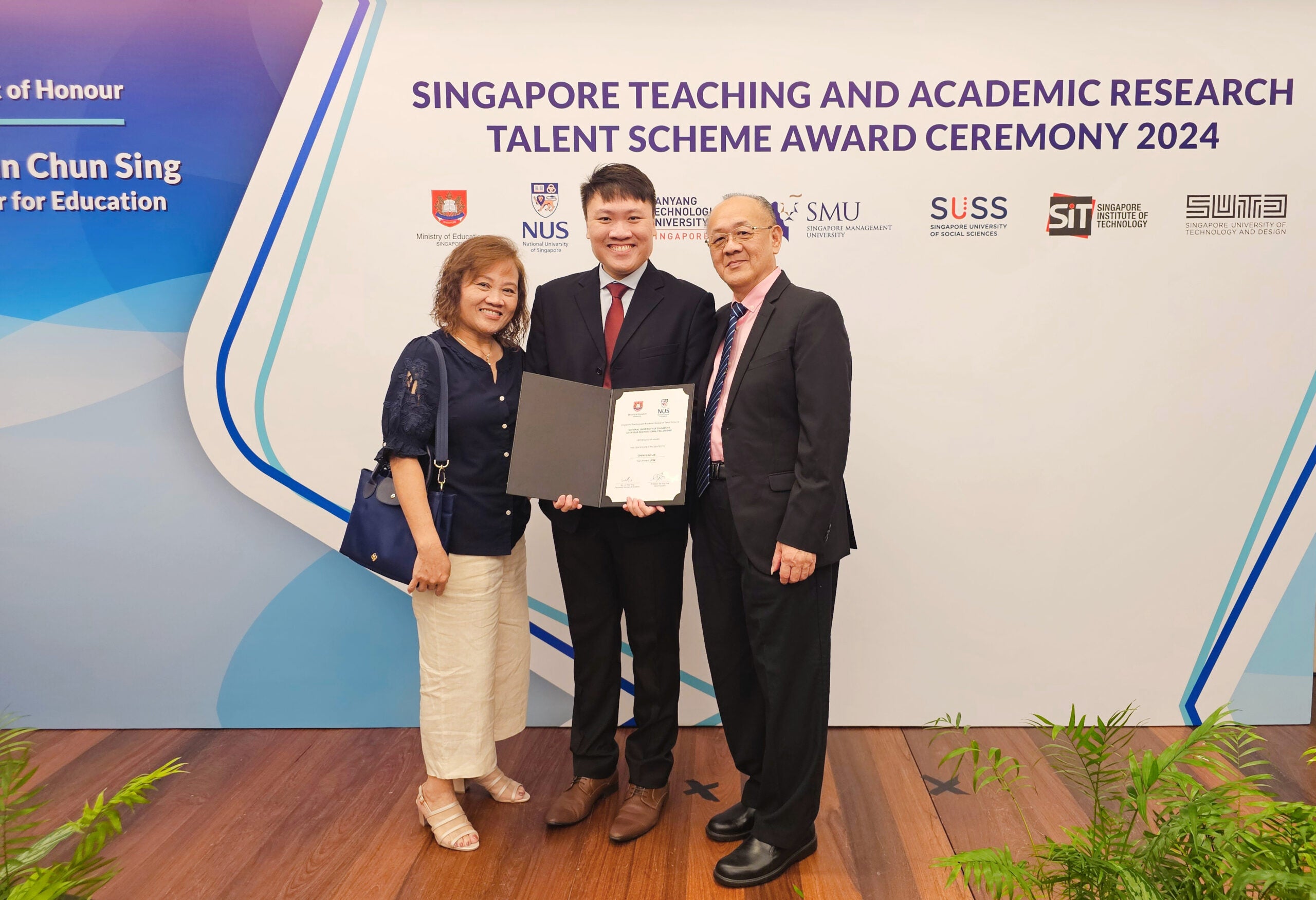
“While working on my undergraduate thesis, I realised that research could advance science and benefit the world—and I knew it was something I wanted to pursue after graduation. I wound up publishing three papers from my thesis, and the entire process (from writing to receiving comments from international reviewers) was incredibly fun. You could say I became addicted from that point on.”
On the excitement of numbers
“I have always loved numbers and advanced quantitative analysis. During my time in the hospital, I often wondered how we could use real-world, big data to further improve resource allocation and clinical decision making. Paired with my interest in examining healthcare from a policy-related perspective, I decided to pursue a Master of Public Health. This allowed me to explore how research could bridge the gap between healthcare practice and policy in Singapore.”
On Nursing + public health
“My clinical experience in Nursing gave me valuable insights on what happens on the ground, but public health has allowed me to understand healthcare from a broader, macro perspective. My Master’s project focused on health-related quality of life (HRQoL) measurement, where I combined my clinical knowledge with practical applications of HRQoL instruments. This intersection now informs much of my current work in health economics and outcomes research.”
On informing policymaking
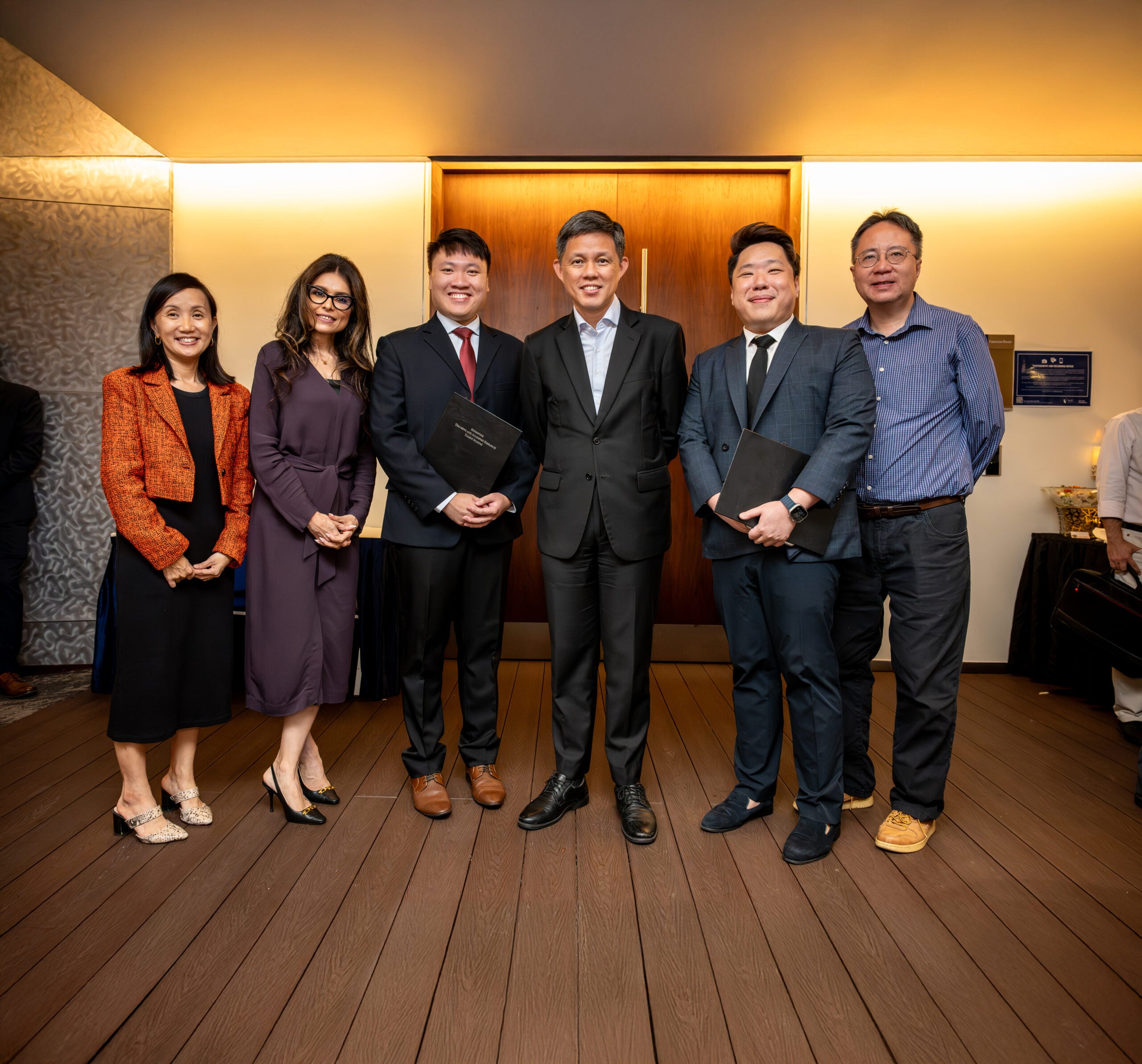
“Interventions in neonatal care and hypertensive disorders in pregnancy are important areas, yet insufficient efforts have been made to synthesise evidence to inform policy decisions. In my postdoctoral research, I aim to integrate long-term health outcomes and societal costs, including family spillover effects, into economic evaluations for these interventions. My Oxford mentor, Professor Oliver Rivero-Arias, has been instrumental in shaping modern health economics research and I look forward to learning his expertise in this phase of my work.”
On nurturing new researchers
“I have had the privilege of teaching and advising undergraduates and postgraduates at NUS Nursing and the Saw Swee Hock School of Public Health. Some of my students have received awards at international conferences and even pursued higher degrees. Knowing that I have helped uncover their research potential and ignite their research passion feels like a meaningful contribution to the field beyond my own work. Soon, I will have the opportunity to do the same at Oxford—one of the most prestigious institutions in the world—a dream come true.”
On the dollars and cents of healthcare
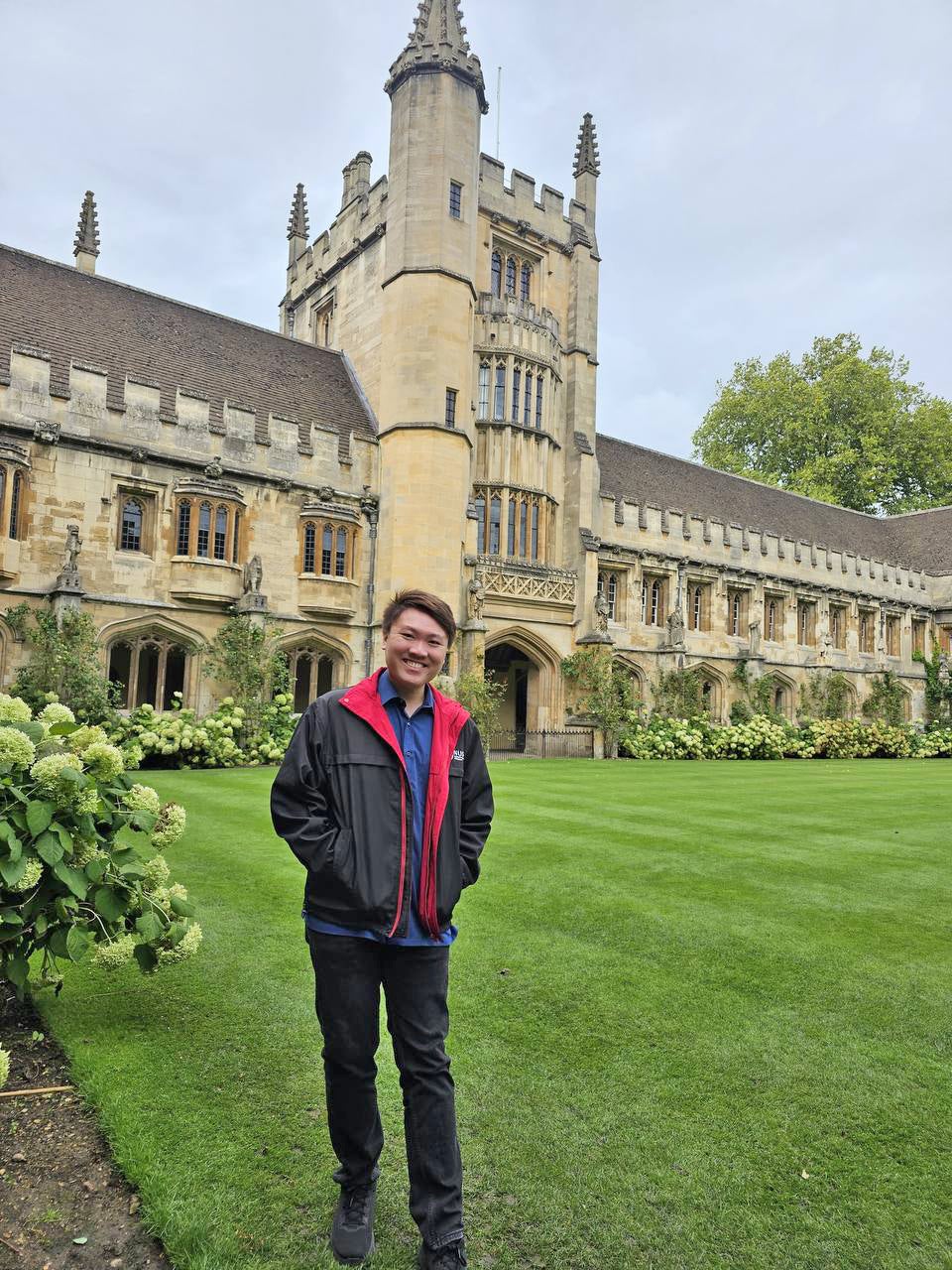
“My goal is to develop a robust prediction model for long-term healthcare outcomes and societal costs to support economic evaluations, using the knowledge and methodologies I have gained from my fellowship. Policymakers increasingly need a comprehensive view of social impact, economics, and health outcomes when evaluating healthcare interventions. By supporting better policy decisions, I hope to contribute to a more equitable and efficient healthcare system.”


